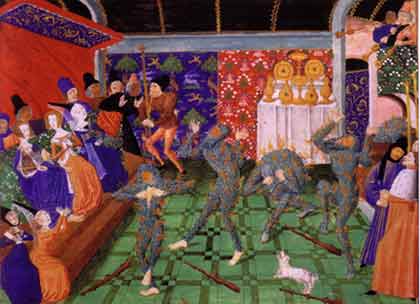| Archery |
| Brewing |
| Calligraphy & writing |
| Combat |
| Cooking |
| Dance |
| Etiquette |
| Household life |
| Medicine |
| Music |
| Needlework |
| Playacting |
| Religion |
| Storytelling |
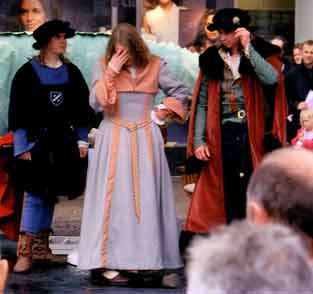 |
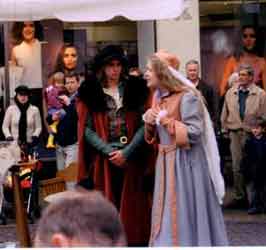 |
“Days, weeks and months thus, sadly, passed |
“O Father, you must let me go |
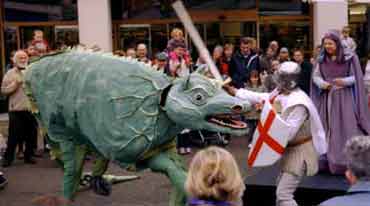 |
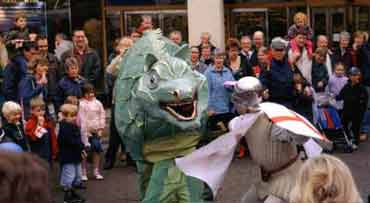 |
| “Calling for aid upon the Lord. Signing the cross, George draws his sword: His heart stung by the maiden’s plight He’s mettlesome, eager to fight.” |
“The beast, relying on his size |
Here are a few scenes from St George and the Dragon, a unique play in verse, written by R. M. Moss and based on the tale told in The Golden Legends - stories of the saints which were already old when published by Caxton in 1483 - and are thus the most authentic source available. A revised version of this play is to be found in Book III of To Save the Lost.
|
